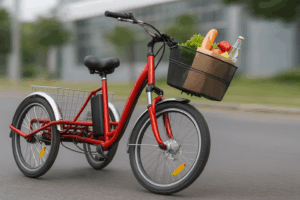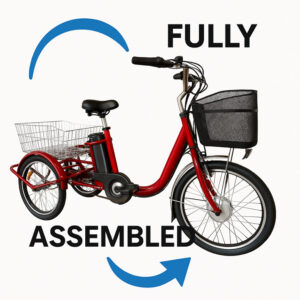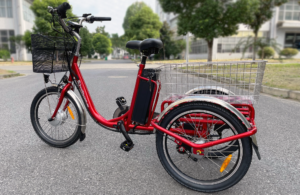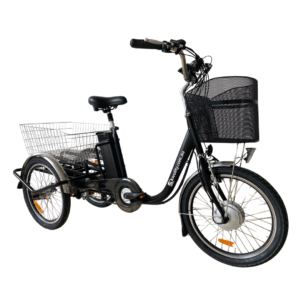
Tilting Cargo E-Trikes Are Growing — Kowlity Has Been Doing It Since Day One
Tilting cargo e-trikes are becoming one of the most exciting parts of the riding world. Riders love the smooth lean-into-corners feel combined with the stability

In today’s world, where environmental concerns are at the forefront, finding sustainable alternatives to traditional modes of transportation is crucial. E-trikes (electric tricycles) and e-bikes (electric bicycles) have emerged as innovative solutions that not only enhance urban mobility but also play a significant role in reducing carbon emissions and combating climate change. This blog explores how these electrified two- and three-wheeled wonders are making a positive impact on our planet by reducing carbon footprints.
E-Trikes and E-Bikes: A Greener Ride
The transportation sector is a significant contributor to global carbon emissions, making the adoption of greener alternatives imperative. E-trikes and e-bikes offer a promising solution by combining the convenience of personal mobility with reduced carbon footprints. As technology advances and charging infrastructure improves, these electric vehicles will become even more accessible and appealing to a wider audience, further accelerating the transition toward a more sustainable transportation future. By embracing e-trikes and e-bikes, we can all play a part in mitigating climate change and creating a cleaner, healthier environment for generations to come.
If you’re ready to take the leap to a cleaner, greener transportation option, get in touch with our experts at Kwolity to discuss how we can help make that happen.

Tilting cargo e-trikes are becoming one of the most exciting parts of the riding world. Riders love the smooth lean-into-corners feel combined with the stability

Buying a trike should be exciting, not stressful. That’s why at Kwolity, we make it simple, every trike we sell is delivered fully assembled and

Electric trikes, or e-trikes, are becoming increasingly popular for their convenience, efficiency, and environmentally friendly nature. One of the standout features of e-trikes is their

Choosing the right e-trike system can be a game-changer for the overall riding experience. At Kwolity E Trikes, we’ve opted for the 36V system over